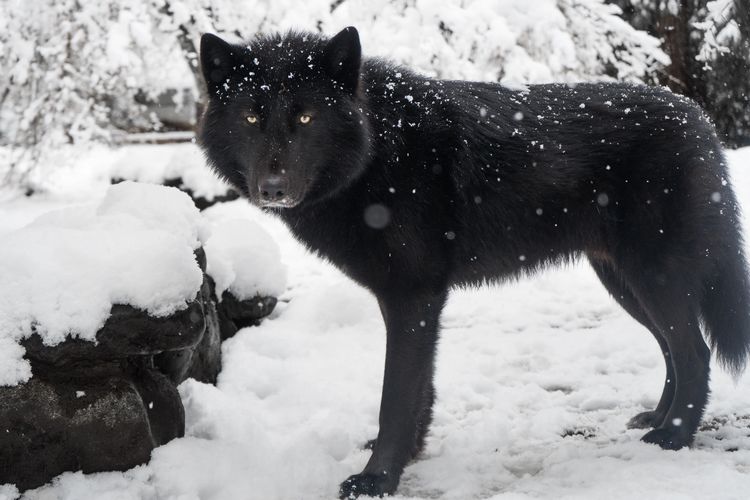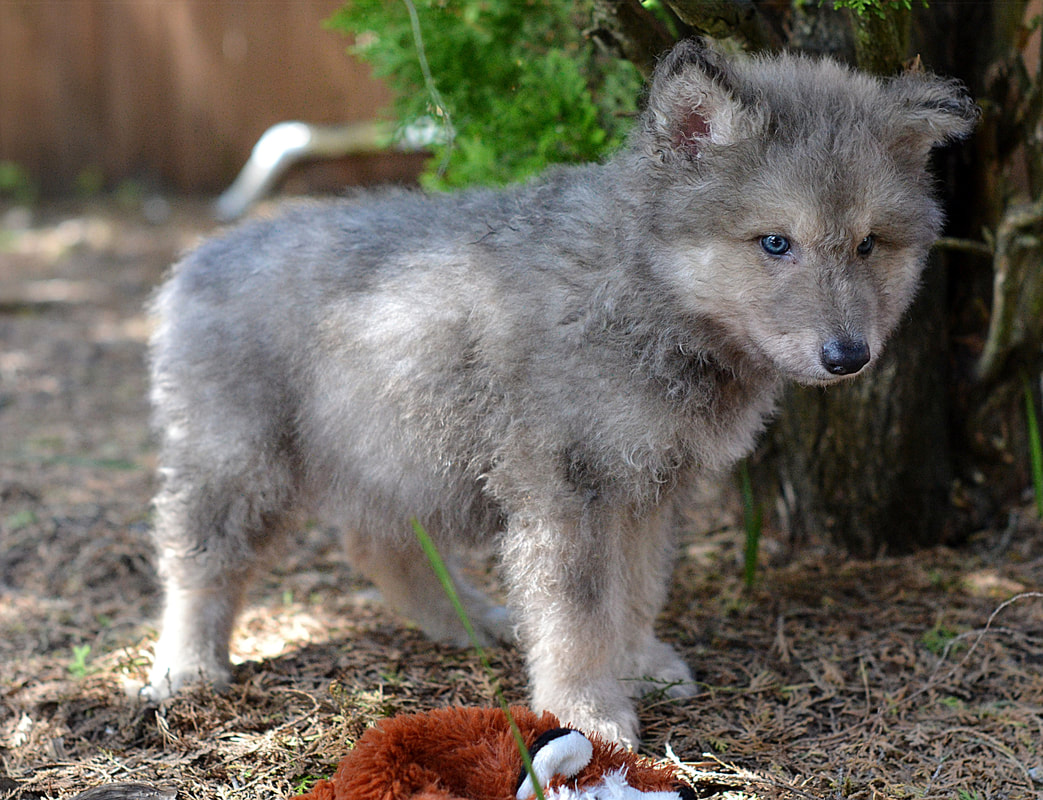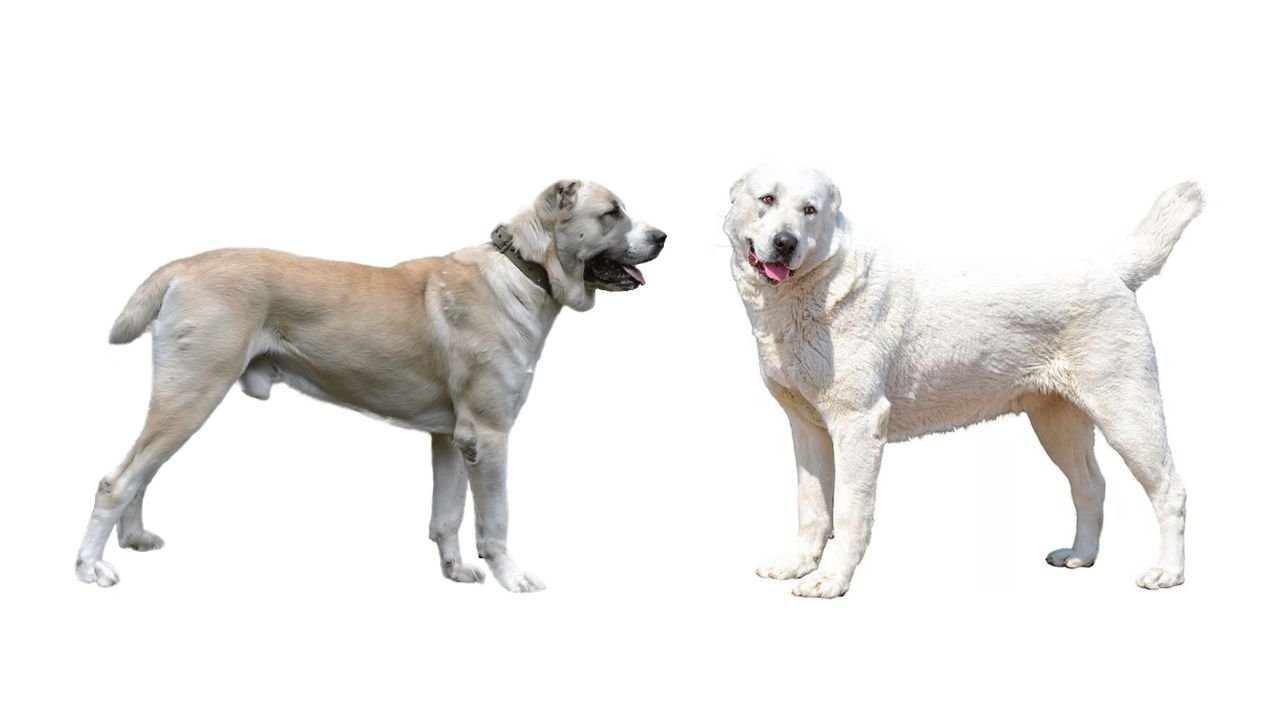Wolf dog puppies for sale near me can be found through online classifieds or by contacting local breeders. If you’re interested in owning a wolf dog puppy, it’s essential to do your research and understand the unique challenges of owning this hybrid breed.
Wolf dogs are a mix of domesticated dogs and wolves, requiring extensive socialization, training, and attention. Due to their wolf genetics, they can also be illegal to own in some areas. Despite the challenges, many people find wolf dogs loyal, intelligent, and fascinating pets.
If you’re up for the challenge and can provide a suitable home, consider adopting a wolf dog puppy from a reputable breeder.

Credit: www.prohory.cz
Introduction To Wolf Dog Puppies
Introducing Wolf Dog Puppies: Wolf dog puppies are a unique and fascinating hybrid of domestic dogs and wolves. These puppies inherit characteristics from both species, making them an intriguing and sought-after choice for pet owners. However, owning a wolf dog puppy comes with its own set of considerations and responsibilities. In this article, we will explore the characteristics of wolfdog hybrids and the legal considerations and ownership responsibilities associated with them.
Characteristics Of Wolf Dog Hybrids
Wolfdog hybrids exhibit a blend of traits from both wolves and domestic dogs. Their physical appearance can vary widely, encompassing features such as pointed ears, a thick coat, and a wolf-like build. These puppies often possess a strong prey drive, heightened senses, and a propensity for howling. While they can be fiercely loyal and affectionate to their owners, they may also display independent and aloof tendencies.
Legal Considerations And Ownership Responsibilities
Prospective werewolf owners must be aware of the legal regulations surrounding the ownership of werewolf-dog hybrids. Laws governing the ownership and breeding of wolf dog puppies vary by state and locality, and it is crucial to adhere to these regulations. Additionally, owning a wolf dog comes with distinct responsibilities, including providing adequate space, socialization, and specialized training to meet their unique needs.
History Of Wolf Dog Breeding
The history of wolwolfdogeeding is a fascinating journey that traces back to the ancient bond between humans and wolves. Wolf dogs, also known as wolf hybrids, result from crossbreeding between domestic dogs and various wolf species. This hybridization has a rich historical background that sheds light on the origins and evolution of the breed.
Origins Of The Wolf Dog
The origins of the wolfdog can be traced back thousands of years when early humans domesticated wolves. This partnership laid the foundation for the deep connection between humans and canines. As time progressed, intentional crossbreeding of wolves and domestic dogs began, leading to the emergence of the wolfdog as a distinct breed.
Evolution Of The Breed
Intentional breeding practices and natural selection have shaped the evolution of the wolfdog breed. Over time, breeders have sought to refine the characteristics of wolf dogs, aiming to create a balanced and adaptable hybrid. This evolution has resulted in the diverse range of wolfdog variations seen today, each with its unique blend of wolf and dog attributes.
Identifying Reputable Breeders
Looking for reputable breeders for wolf dog puppies near you? Here’s a quick guide to help you identify trustworthy breeders without the common pitfalls. Find the perfect furry companion with confidence and peace of mind.
Finding a trustworthy breeder is crucial when searching for wolf dog puppies for sale near you. To ensure you are getting a healthy and well-cared-for puppy, knowing what signs to look for and the right questions to ask is essential. Following these guidelines, you can make a responsible and informed decision before purchasing a wolf dog puppy.
Signs Of A Trustworthy Breeder
When searching for a reputable breeder, keep an eye out for the following signs:
1. Clean and Well-Maintained Facilities: A reputable breeder will have clean and well-maintained facilities where their dogs are kept. This includes proper sanitation, ample space for the dogs to exercise, and suitable living conditions.
2. Health Testing and Documentation: A responsible breeder will conduct health tests on their breeding dogs to ensure they are free from genetic diseases. They will also provide documentation of these tests, allowing you to verify the health status of the puppy’s parents.
3. Socialization and Training: Reputable breeders prioritize the socialization and training of their puppies from an early age. They will expose the puppies to various stimuli, environments, and people, ensuring they become well-adjusted and confident dogs.
4. Knowledge and Expertise: A trustworthy breeder will have in-depth knowledge about the breed, including its characteristics, temperament, and specific care requirements. They can answer any questions you have and guide the puppy through its life.
Questions To Ask Before Purchasing
Before making a decision, be sure to ask the breeder the following questions:
1. Can I Meet the Parents? Requesting to meet the puppy’s parents will give you an idea of their temperament and overall health. It also allows you to assess their compatibility with your lifestyle and preferences.
2. Can I See Health Records? Ask the breeder to provide you with the health records of both the parents and the puppies. This will help you ensure that the puppies have received appropriate vaccinations and have been regularly dewormed.
3. What Support and Guarantees Do You Offer? Please inquire about the breeder’s support system and any guarantees they provide. A reputable breeder will offer ongoing support and be available to answer any questions or concerns you may have as your puppy grows.
4. Are You Involved in Any Breed-Specific Organizations? Breeders actively involved in breed-specific organizations are more likely to be knowledgeable and committed to improving the breed. This involvement demonstrates their dedication to responsible breeding practices.
By considering these signs and asking the right questions, you can ensure that you purchase a wolf dog puppy from a reputable breeder who prioritizes the health and well-being of their dogs. Remember, responsible breeding leads to happy and healthy puppies that will bring joy to your life for years to come.

Credit: oregonwolfdogs.com
Preparing For Wolf Dog Ownership
Essential Supplies For Your New Pet
When bringing home a wolf dog puppy, it’s crucial to have the essential supplies ready:
- Quality dog food
- Leash and collar
- Comfortable bedding
- Food and water bowls
- Toys for enrichment
- Grooming tools
Creating A Wolf Dog-friendly Environment
Setting up a wolf-dog-friendly space requires specific considerations:
- Secure fencing to prevent escape
- Shelter from harsh weather
- Safe areas for exercise
- Avoid toxic plants in the surroundings
- Provide mental stimulation
Health And Wellness
Explore a range of health and wellness benefits with wolf dog puppies available for sale near you. Discover the perfect furry companion to enhance your well-being and bring joy into your life.
Common Health Issues In Wolf Dogs
Wolf dogs, a unique mix of domestic dogs and wolves, require special attention regarding their health and wellness. While these majestic creatures make lovely companions, they are prone to specific health issues that potential owners should know. Here are some common health issues that you should keep in mind when considering wolf dog puppies for sale near you:
- 1. Hip Dysplasia: This condition affects the hip joints and can cause pain and mobility issues for your wolf dog. Regular veterinary check-ups and proper exercise can help prevent or manage this condition.
- 2. Bloat: Wolf dogs have a deep chest, making them susceptible to gastric dilation volvulus, or bloat. This severe and potentially life-threatening condition requires immediate veterinary attention.
- 3. Eye Problems: Some wolf dogs may develop eye issues such as cataracts or progressive retinal atrophy. Regular eye exams and preventive measures can help maintain their ocular health.
- 4. Allergies: Wolf dogs can suffer from allergies like their domestic dogs. These can manifest as skin irritations, itching, or respiratory problems. Identifying and avoiding allergens can help alleviate their discomfort.
- 5. Dental Problems: Wolf dogs are prone to dental issues, including tartar buildup, gum disease, and tooth decay. Regular dental care, such as brushing teeth and providing appropriate chew toys, can help maintain oral health.
Routine Care And Vaccinations
To ensure the health and wellness of your wolf dog, it’s essential to establish a routine care regimen and keep up with their vaccinations. Here are some key aspects to consider:
- 1. Diet and Nutrition: Provide a balanced, high-quality diet that meets your wolf dog’s nutritional needs. Consult a veterinarian to determine the best food options for your breed mix.
- 2. Exercise: Wolf dogs are active animals that require regular exercise to stimulate them physically and mentally. Wolf dogs should engage in long walks, runs, and play sessions to fulfill their exercise needs.
- 3. Grooming: Regular grooming sessions, including brushing their thick coat and checking their ears and nails, are essential for maintaining their overall health and hygiene.
- 4. Vaccinations: Consult with a veterinarian to ensure your wolf dog receives all necessary vaccinations, including those for rabies, distemper, parvovirus, and others recommended by your vet.
- 5. Parasite Prevention: Use appropriate preventive medications to protect your wolf dog from parasites like fleas, ticks, and heartworms. Regularly check for any signs of infestation.
Remember, maintaining the health and wellness of your wolf dog is crucial for their overall happiness and longevity. By proactively addressing their specific health needs and providing them with the care they require, you can ensure a fulfilling and joyful life for your furry companion.
Training And Socialization
Ensure the proper training and socialization of your Wolf Dog puppies for sale near you. This crucial step will help them develop into well-behaved and balanced companions, strengthening your bond and enhancing their happiness and adaptability.
When owning a wolf dog, training and socialization are crucial for a happy and healthy relationship with your pet. It is essential to begin training your wolf dog as early as possible and to socialize with other animals and people to prevent any behavioral issues in the future. Let’s look at the importance of early training and how to socialize your wolf dog properly.
Importance Of Early Training
Early training for your wolf dog is vital. These puppies are intelligent and quick learners but can also be stubborn and challenging to train as they age. Start by teaching them basic commands such as “sit,” “stay,” and “come.” Consistency is vital, so make sure to practice these commands every day.
When twolfdogyour wolfdog, it is essential to use positive reinforcement methods such as trwolfdogaise and affection. Avoid harsh punishments or physical force, as these can damage your relationship with your pet and lead to aggressive behavior.
Socializing Your Wolf Dog With Other Animals And People
Socializing your wolf dog with other animals and people is crucial for preventing any aggressive behavior in the future. Start by introducing your puppy to other dogs, cats, and small animals, such as rabbits or guinea pigs. Always supervise these interactions and reward your puppy for good behavior.
When socializing your wolf dog with people, it is essential to expose it to various individuals. This includes men, women, children, and people of other races and ages. Make sure to reward your puppy for calm and friendly behavior, and never force it to interact with someone it is uncomfortable with.
In conclusion, training and socialization are crucial for owning a happy and healthy wolf dog. By starting early and using positive reinforcement methods, you can ensure that your puppy grows up to be a well-behaved and socialized adult.
Wolf Dog Puppies Adoption
When it comes to wolf dog puppies adoption, it’s essential to consider the best approach that aligns with your values and lifestyle. Whether you’re considering adoption or buying, it’s crucial to make an informed decision that prioritizes the well-being of the puppies.
Adoption Vs. Buying
- Provides a loving home to puppies in need
- Supports animal welfare and ethical breeding practices
- Offers the opportunity to give a second chance to a puppy
- Allows for specific breed preferences
- May support responsible breeders who prioritize health and temperament
- Requires thorough research to avoid unethical breeders
Rescue Centers And Shelters
- Provide a haven for wolf dog puppies in need of homes
- Often offer puppies with diverse backgrounds and stories
- May have specific requirements for potential adopters
- Offer a variety of puppies in need of adoption
- Provide essential care and medical attention to puppies before adoption
- May have lower adoption fees compared to private breeders

Credit: www.wolfdogpuppylove.com
Cost Considerations
Before bringing one of these unique animals into your home, you must consider the cost of purchasing and owning one. Understanding the initial purchase price and ongoing expenses is crucial for budgeting and ensuring you can adequately care for your wolf dog.
Initial Purchase
When considering the initial purchase of a wolfdog puppy, wolfdogential should account for the cost of the puppy itself and any additional expenses such as vaccinations, microchipping, and spaying or neutering. Research reputable breeders or rescue organizations to ensure you get a healthy and well-cared-for puppy.
Ongoing Expenses
Once you have acquired your wolf dog puppy, ongoing expenses will include food, grooming, veterinary care, and potential training or behavioral consultations. Budgeting for regular veterinary check-ups and any unexpected medical expthatslensesy arise is essential.
Making The Decision
Considering wolf dog puppies for sale near you requires careful decision-making. Assess your readiness for the commitment and responsibility of owning a wolf dog. Research breeders and ensure they adhere to ethical and legal standards. Prepare your home for the arrival of your new furry family member.
If you are considering getting a wolf dog puppy, it is essential to make an informed decision. Wolf dogs are unique and fascinating animals that require a lot of time, effort, and commitment. This section will explore some important factors before purchasing a wolf dog puppy.
Long-term Commitment And Considerations
It is essential to understand that owning a wolf dog is a long-term commitment. These animals can live up to 15 years or more, requiring much attention and care. Here are some important considerations to keep in mind:
- Wolf dogs require a lot of exercise and mental stimulation. They need plenty of space to run and play, and they enjoy activities like hiking, swimming, and playing fetch.
- Wolf dogs are highly social animals and require much attention and affection from their owners. They may become destructive or develop behavioral issues if left alone for long periods.
- Wolf dogs require a specialized diet, including raw meat, bones, and supplements. It is essential to consult with a veterinarian or nutritionist to ensure your wolf dog receives the proper nutrition.
- Wolf dogs can be challenging to train and may exhibit stubborn or aggressive behavior if not correctly socialized and taught from a young age.
Is A Wolf Dog Right For You?
Before deciding to purchase a wolf dog puppy, it is essential to consider whether this type of animal is right for you. Here are some questions to ask yourself:
- Do you have experience owning and caring for dogs?
- Do you have the time and resources to provide a wolfdog with the wolfdog care and attention?
- Do you have the space for a large, active animal?
- Are you willing to put time and effort into training and socializing your wolf dog?
- Are you prepared to handle any behavioral issues that may arise?
If you are unsure whether a wolf dog is right for you, spending time around these animals and talking to other owners may help you better understand what ownership entails.
In conclusion, owning a wolf dog can be a rewarding and fulfilling experience. Still, making an informed decision and considering the long-term commitment and responsibilities involved is essential. By carefully evaluating your situation and needs, you can make the best decision for you and your potential new furry friend.
Frequently Asked Questions
Wolf Dog Puppies for Sale near Me?
Wolf dog puppies for sale near me can be found through online classifieds or by contacting local breeders. If you’re interested in owning a wolf dog puppy, it’s essential to do your research and understand the unique challenges of owning this hybrid breed.
Can You Have WWolfdogsIn Texas?
Yes, WWolfdogs can be kept as wolfdogs in Texas, but regulations vary by county.
In what State Are Wolf Dogs Legal?
WolfWolfdogse is legal in some, including Michigan, Nevada, and North Carolina. Laws vary by location.
Are Wolfdogs Good Pets?
WolfWolfdogs make good pWolfdogs proper training and socialization. They are loyal and intelligent and require a wolfdogs owner.
WhatWolfwolfdogsog?
F1 wolfdog is a first-generwolfdogybrid of a wolf and a domestic dog. It has 50% wolf genes and 50% domestic dog genes. They Wolfdogwolf-wolfdogpearance, temperament, and behavior but are known to be loyal and protective like dogs.
Conclusion
Wolf dog puppies for sale near you offer a unique and loyal pet choice. Their intelligence and beauty make them a desirable addition to any family. Consider adopting one to bring joy and companionship into your life. Explore the available options and find your perfect furry companion today.

Hello I am Farhana I have been doing research on dogs since last 10 years. I have been doing research on dog special parts or dog food since last 10 years. I have gained knowledge about my dog in these ten years so. I want to blog about it daily.

